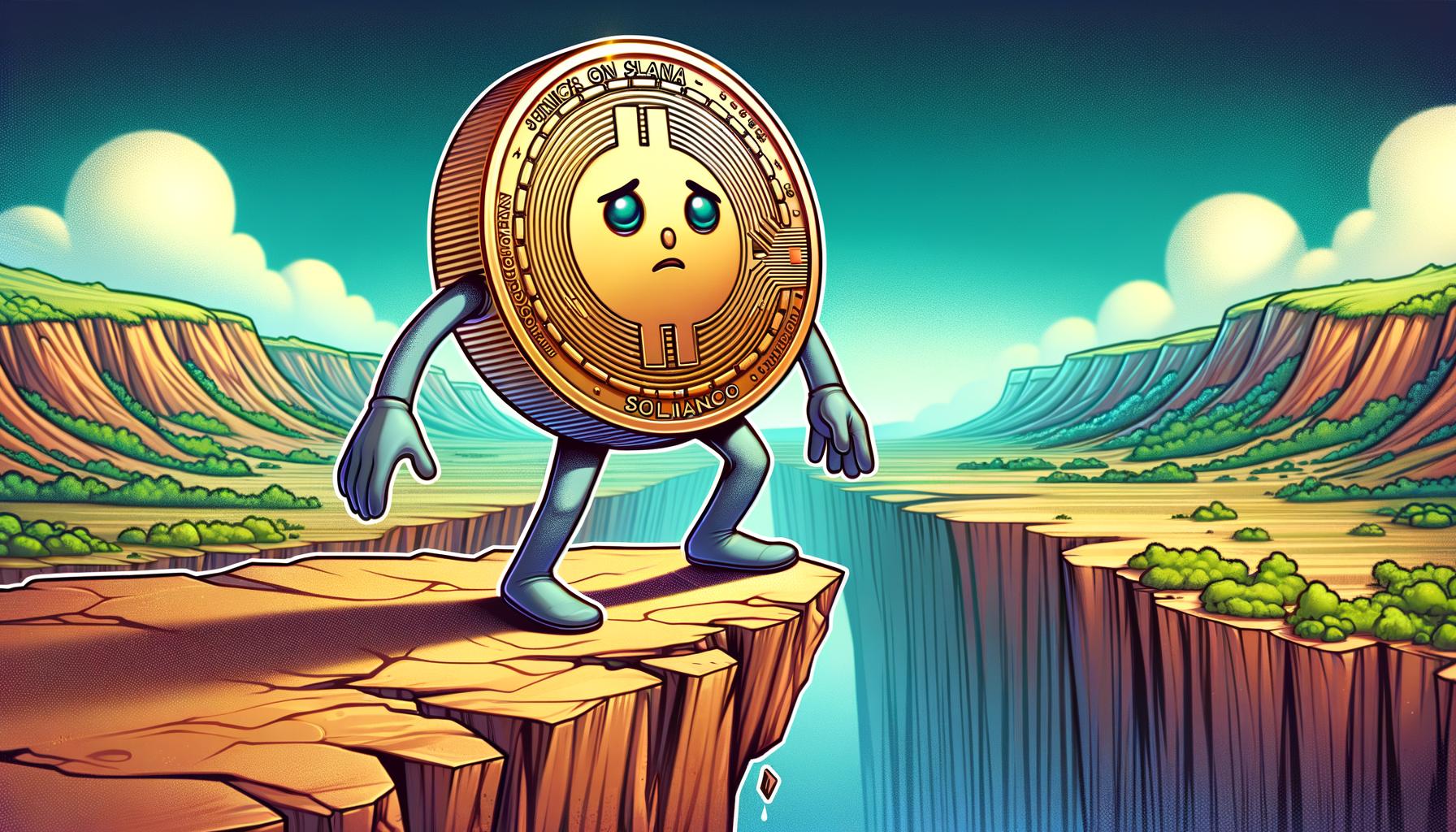ARTICLE AD
Efforts by the Firedancer and Anza teams might solve dropped transaction issues reported by users recently.
Solana transactions peaked at a fail rate of over 75% between April 4 and 5, according to a Dune Analytics dashboard by user scarn_eth. At the same period, Solana users have been reporting issues with failed transactions, with wallets like Phantom leaving a permanent message for users about network instability.
Failed transactions normally occur when bots hunt for arbitrage opportunities and when the arbitrage window vanishes, resulting in their transaction intentionally rolling back, explains Tristan Frizza, founder of decentralized derivative exchange Zeta Markets.
Those fails occur when the smart contract logic throws an error and causes the transaction to roll back and not be committed to the blockchain state. “For example, if I were to place a trade on Zeta Markets worth $100 but only had $1 of margin, the Zeta program would throw an error saying I have insufficient margin to place the trade,” states Frizza.
The percentage of failed transactions has been historically hovering around or above 50% for most of Solana’s lifetime but has become even higher given the price inefficiencies surrounding new token launches and meme coins.
“That being said, it’s been great to see platforms like Jito booming in adoption, which aims to reduce the negative effects of MEV and bot transactions on ordinary users by allowing bot programs to bid for bundles rather than aggressively spam the network,” Zeta’s founder adds.
MEV is short for maximum extractable value, which is commonly used when bots make harmful moves on a blockchain over users’ legitimate transactions, like front-running trades. Services like Jito, in Solana’s case, are aimed at avoiding those moves.
However, what users have been experiencing on Solana are dropped transactions, which Frizza classifies as “quite different” from failed transactions. Transactions are dropped mostly due to network congestion when RPC nodes around the world forward transactions from their users to the block leader.
“Due to limitations in the current networking layer implementation of Solana, it’s possible with enough inbound connections to overwhelm the QUIC [a general-purpose transport layer network protocol] port of the leader and hence have those incoming transactions dropped. This results in transactions that never show up in the block explorer, since they got dropped before they even had a chance to execute, as opposed to failed transactions which will show up in the explorer,” he explains.
This is a fundamental issue, which means it is directly related to Solana. Yet, decentralized applications such as Zeta try to mitigate these dropped transaction issues by implementing retry logic and broadcasting to several RPC providers, to bring their current transaction landing success from below 20% to over 80% during the last few days.
A fix might be on the way with the update Solana 1.18, which is slated to roll out on April 15. The changes will improve how the local fee markets work, by allowing the scheduler to much more reliably prioritize fees across an entire block, says Frizza. Yet, it won’t necessarily solve the most pressing performance issues around the QUIC networking layer that are causing the dropping of transactions.
“Thankfully the Anza and Firedancer teams are expediting hotfixes to the networking stack, which we hope will be fast-tracked this week. The good news is that the Firedancer networking implementation doesn’t suffer from the same bugs the original client is plagued by, so we remain optimistic that improvements should be seen in advance of the 15th,” Zeta’s founder concludes.
The information on or accessed through this website is obtained from independent sources we believe to be accurate and reliable, but Decentral Media, Inc. makes no representation or warranty as to the timeliness, completeness, or accuracy of any information on or accessed through this website. Decentral Media, Inc. is not an investment advisor. We do not give personalized investment advice or other financial advice. The information on this website is subject to change without notice. Some or all of the information on this website may become outdated, or it may be or become incomplete or inaccurate. We may, but are not obligated to, update any outdated, incomplete, or inaccurate information.
Crypto Briefing may augment articles with AI-generated content created by Crypto Briefing’s own proprietary AI platform. We use AI as a tool to deliver fast, valuable and actionable information without losing the insight - and oversight - of experienced crypto natives. All AI augmented content is carefully reviewed, including for factural accuracy, by our editors and writers, and always draws from multiple primary and secondary sources when available to create our stories and articles.
You should never make an investment decision on an ICO, IEO, or other investment based on the information on this website, and you should never interpret or otherwise rely on any of the information on this website as investment advice. We strongly recommend that you consult a licensed investment advisor or other qualified financial professional if you are seeking investment advice on an ICO, IEO, or other investment. We do not accept compensation in any form for analyzing or reporting on any ICO, IEO, cryptocurrency, currency, tokenized sales, securities, or commodities.

 9 months ago
59
9 months ago
59 

